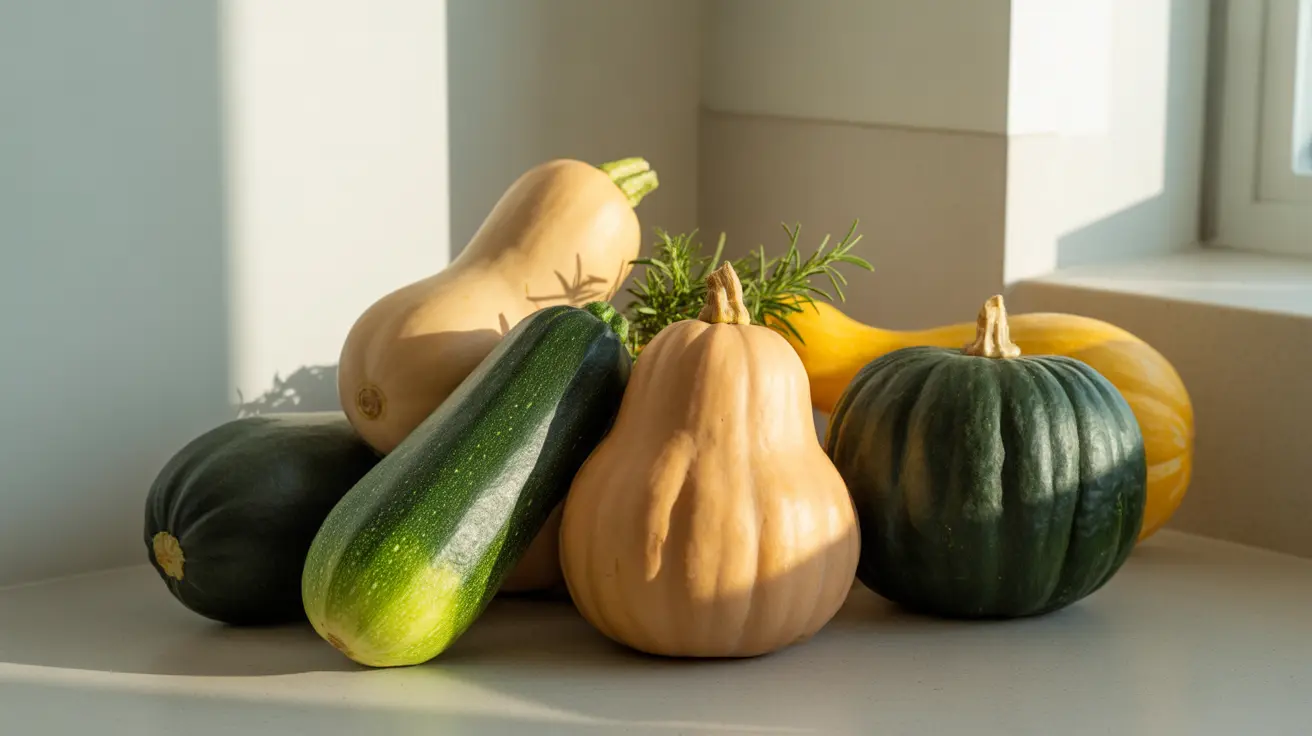If you're watching your carbohydrate intake or following a low-carb diet, you might be wondering about the carb content of different squash varieties. Understanding which types of squash fit into your dietary goals can help you make informed choices while still enjoying these nutritious vegetables.
From summer squash to winter varieties, these versatile vegetables offer different nutritional profiles and carbohydrate contents. Let's explore how various squash types can fit into a healthy, carb-conscious eating plan.
Summer vs. Winter Squash: Understanding the Carb Difference
Summer squash varieties typically contain fewer carbohydrates than their winter counterparts. This makes them excellent choices for low-carb diets:
Summer Squash Varieties
- Zucchini: 3g net carbs per cup
- Yellow squash: 3.5g net carbs per cup
- Patty pan: 2.5g net carbs per cup
Winter Squash Varieties
- Butternut squash: 13g net carbs per cup
- Acorn squash: 12g net carbs per cup
- Pumpkin: 7g net carbs per cup
- Spaghetti squash: 7g net carbs per cup
Low-Carb Squash Options for Different Diets
For those following specific dietary patterns, certain squash varieties work better than others:
Keto-Friendly Choices
- Zucchini
- Yellow summer squash
- Spaghetti squash (in moderation)
Moderate-Carb Options
- Pumpkin
- Kabocha squash
- Delicata squash
Nutritional Benefits Beyond Carbs
Squash varieties offer numerous health benefits regardless of their carb content:
- High in fiber for digestive health
- Rich in vitamins A and C
- Good source of potassium
- Contains antioxidants
- Low in calories
Creative Low-Carb Squash Substitutions
Many squash varieties can replace higher-carb ingredients in your favorite recipes:
- Spaghetti squash for pasta
- Zucchini noodles (zoodles) for regular noodles
- Roasted squash cubes for potatoes
- Mashed cauliflower and squash for traditional mashed potatoes
Frequently Asked Questions
- Which types of squash are lowest in carbs, and can I eat them on a low-carb diet?
Summer squash varieties like zucchini, yellow squash, and patty pan are lowest in carbs, containing only 2-4g net carbs per cup. These are excellent choices for low-carb diets and can be eaten regularly while maintaining ketosis.
- How much carbohydrate is in one serving of summer squash versus winter squash?
Summer squash typically contains 3-4g net carbs per cup serving, while winter squash varieties range from 7-13g net carbs per cup. Summer squash contains more water and less starch, accounting for this difference.
- Can I substitute squash for pasta or rice in low-carb recipes, and which types work best?
Yes, several squash varieties work well as low-carb substitutes. Spaghetti squash naturally forms pasta-like strands, while zucchini can be spiralized into noodles. Both options contain significantly fewer carbs than traditional pasta or rice.
- Does eating squash help with digestion and gut health because of its fiber content?
Yes, squash is rich in both soluble and insoluble fiber, which aids digestion, promotes regular bowel movements, and supports gut health. The fiber content also helps maintain healthy blood sugar levels and promotes feelings of fullness.
- What are the main nutritional benefits of eating different types of squash, and which is healthiest for weight loss?
All squash varieties are nutrient-dense, providing vitamins, minerals, and fiber while being relatively low in calories. Summer squash varieties are particularly good for weight loss due to their high water content, low calorie count, and lower carb content. They're also rich in vitamins A and C, potassium, and antioxidants.




